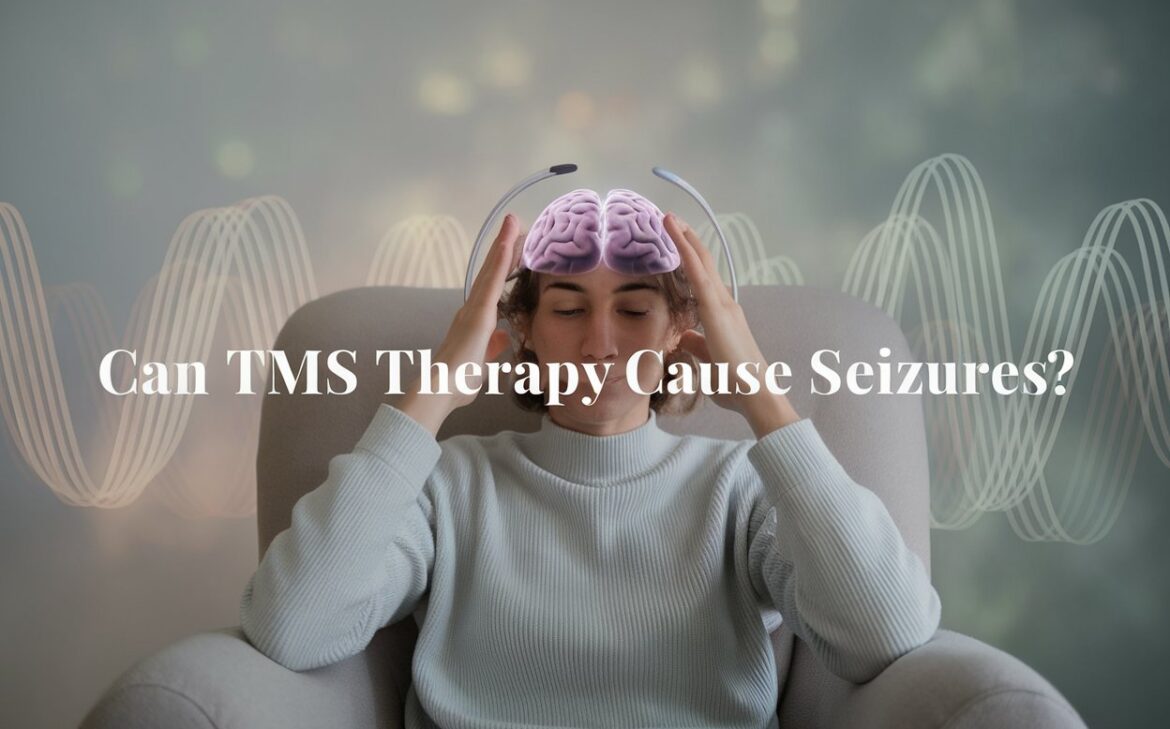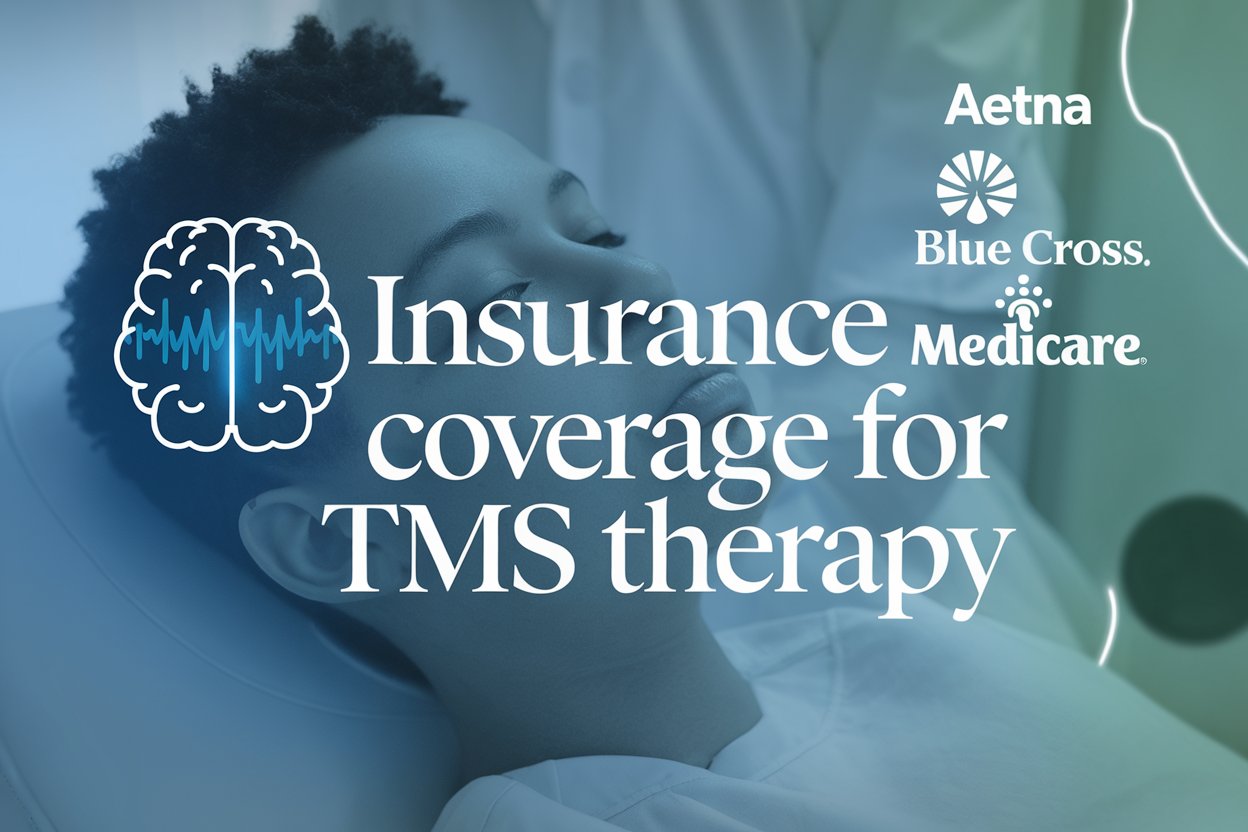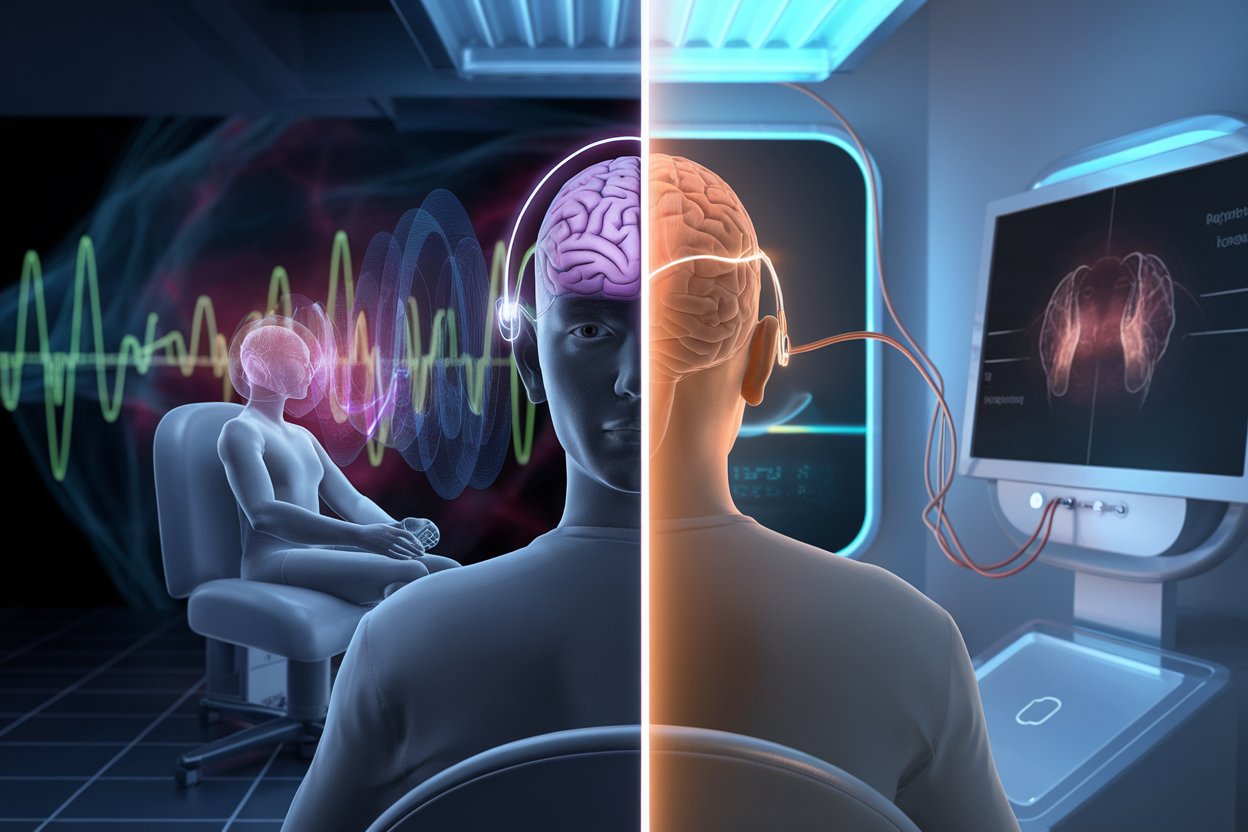Transcranial Magnetic Stimulation (TMS) is a well-known treatment for people with depression, especially for those who haven’t found relief with other options. Can TMS therapy lead to seizures? The simple answer is: Yes, but it is extremely rare. Seizures can be a possible side effect, but TMS is safe and works well for most patients. In this article, we will look at what TMS therapy is, its risks, and who may have a higher chance of having a seizure.
What is TMS therapy?
TMS therapy is a safe treatment for depression that does not involve surgery. It uses a magnetic coil placed on the patient’s scalp to create magnetic pulses that stimulate specific areas of the brain. These magnetic pulses help improve mood by enhancing communication between brain cells. TMS is usually used when medications or talk therapy don’t help much.
How TMS Works: During a session, the patient sits comfortably with a coil placed on their head. The coil sends out repeated magnetic waves that can create small electrical currents in the brain, which help stimulate areas that manage mood. The sessions typically last 20 to 40 minutes and happen several times a week for a few weeks.
Can TMS Therapy Cause Seizures?
One of the most common questions patients ask is, “Can TMS therapy cause seizures?” Yes, but seizures during TMS therapy are very uncommon. Research shows that the chance of having a seizure during TMS is under 1%. This is similar to the risk of having a seizure from many common antidepressants.
Most of the time, seizures caused by TMS stop on their own and do not lead to lasting damage. It’s important to keep in mind that the advantages of TMS therapy are usually greater than this minor risk, especially for patients who haven’t had success with other treatments.
What Increases the Risk of Seizures with TMS?
The chance of having seizures from TMS therapy is very low, but some things can raise the risk of this happening. Here are some situations that might raise the risk:
- History of Seizures: People with a personal or family history of epilepsy or seizures are at a slightly higher risk.
- Neurological Conditions: Conditions such as brain tumours or traumatic brain injuries can increase the chances of having a seizure.
- Medications: Certain medications, especially those that lower the seizure threshold, can contribute to a higher risk. These include some antidepressants and antipsychotics.
- Sleep Deprivation: Lack of sleep has been linked to an increased risk of seizures during TMS therapy.
- Alcohol or Substance Use: Excessive alcohol or drug use can also increase seizure risk.
Your doctor must assess your medical history before starting TMS to determine if you have any of these risk factors.
How Rare Are Seizures with TMS Therapy?
Seizures during TMS therapy are very rare. Research shows that less than 1 in 30,000 TMS treatments result in a seizure. To clarify, the chance of having a seizure from some antidepressant medications can be greater than the risk associated with TMS.
Common Side Effects of TMS Therapy
Seizures are a rare side effect of TMS therapy, but there are other side effects that happen more often. These are:
- Scalp Discomfort: Some patients report feeling discomfort or tingling on their scalp during the treatment.
- Headache: Mild headaches are common but usually go away after treatment or with over-the-counter pain medication.
- Lightheadedness: A small number of people feel lightheaded right after treatment.
These side effects are generally mild and fade away soon after treatment. Most patients find TMS therapy easy to handle.
Who Should Avoid TMS Therapy?
TMS therapy is generally safe, but some people should avoid it. These are:
- Individuals with Metal Implants: If you have metal implants in or near your head, like cochlear implants or aneurysm clips, you should not have TMS. The magnetic fields from TMS can disrupt these devices.
- People with a History of Seizures: TMS can be done on people who have had seizures in the past, but it needs to be done with careful thought and supervision. Your doctor will consider the possible benefits and risks.
- Pregnant Women: There is limited research on the safety of TMS during pregnancy, so it’s usually recommended to avoid TMS until after childbirth.
How to Minimise Risks During TMS Therapy
To keep the risks as low as possible, patients need to follow these guidelines:
- Get Enough Sleep: Sleep deprivation is a known trigger for seizures, so getting enough rest is important.
- Avoid Alcohol and Drugs: Alcohol and recreational drugs can increase seizure risk, so they should be avoided during TMS treatment.
- Inform Your Doctor About Medications: Make sure to tell your doctor about any medications you are taking. Your doctor might adjust your treatment plan to minimise the risk of seizures.
What to Expect if a Seizure Happens During TMS
If a seizure happens during TMS therapy, trained healthcare professionals will respond right away. The magnetic pulses will be turned off, and the patient will be watched until the seizure is over. Most of the time, seizures caused by TMS are brief and do not lead to long-term damage.
After a seizure, your doctor might review your treatment plan. Some patients can keep using TMS after a seizure, while others may need to stop. The decision will be based on personal risk factors and how serious the seizure is.
Benefits of TMS Therapy Outweigh the Risks
TMS therapy can help many people with depression, especially those who haven’t improved with other treatments, even though there is a small risk of seizures. TMS helps lessen symptoms of depression and boosts overall quality of life. It is safe, doesn’t need anaesthesia, and doesn’t cause the side effects usually linked to antidepressant drugs.
Patients thinking about TMS therapy should talk to their doctor about the pros and cons. For many people, the chance to improve their mental health is much more important than the slight risk of having a seizure.
Conclusion
Can TMS therapy lead to seizures? Yes, but the risk is very unlikely. TMS therapy is usually a safe and effective way to treat depression, with a very low chance of serious side effects such as seizures. If you’re thinking about TMS, make sure to discuss your medical history and any worries with your doctor.
The main point is that seizures can occur during TMS therapy, but they are very uncommon and usually go away on their own. The advantages of TMS, particularly for those who haven’t found success with other treatments, usually outweigh the minor risks. By talking with a healthcare provider, you can find out if TMS is a good option for you.
Explore TMS Therapy with Confidence
Can TMS therapy lead to seizures? It’s uncommon, but it’s a safe treatment for many people. If you have depression, reach out to our experts at American TMS Clinics. We will help you understand the process and see if TMS is a good option for you. Contact us today.!





